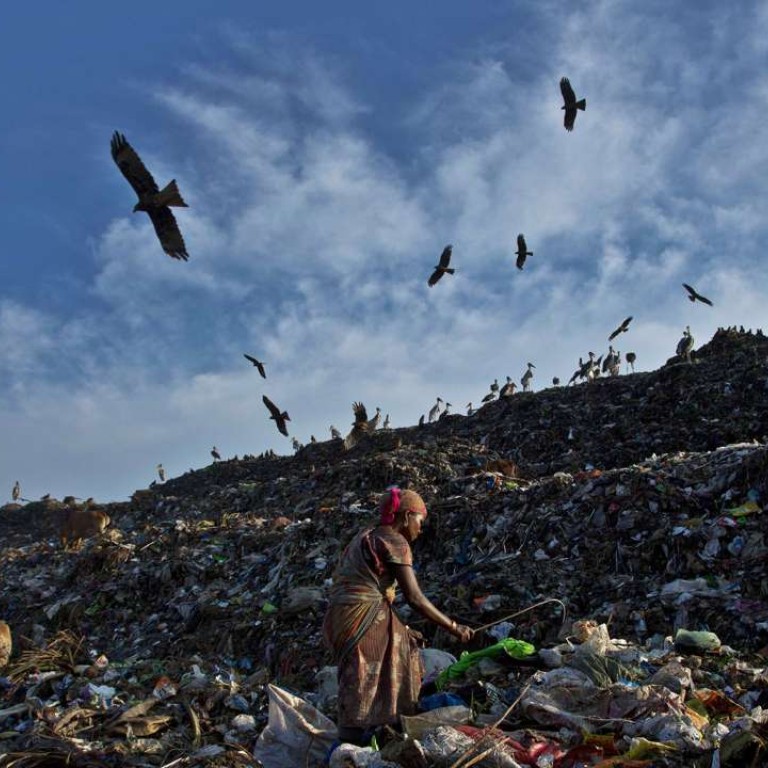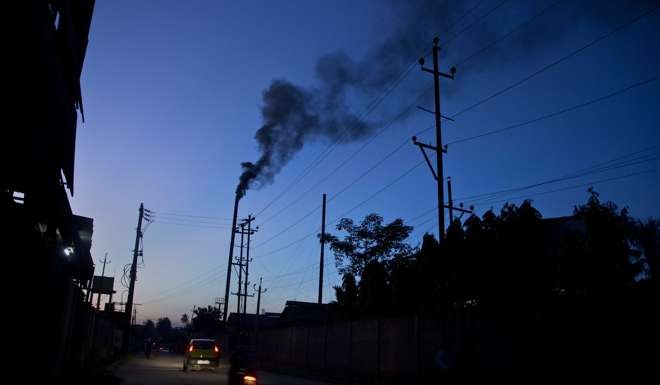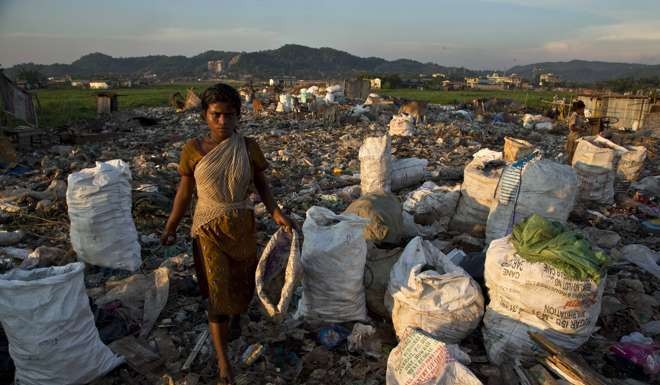
India ratifies historic Paris climate change pact
New Delhi’s landmark move has been cheered at the United Nations, but its pledges are vague and it’s only committing to slowing down emissions rate
India, the world’s third biggest carbon emitter, has ratified the Paris agreement on climate change on the birthday of the country’s iconic independence leader Mahatma Gandhi.
India, with a population of 1.3 billion people, is the latest big polluter to formally sign the historic accord which now takes a major step towards becoming reality.
With India’s move, a total of 62 countries accounting for almost 52 per cent of emissions have now ratified the agreement to commit to take action to stem the planet’s rising temperatures.
On Sunday, Indian officials, including UN Ambassador Syed Akbaruddin, ceremoniously handed over signed documents at the United Nations in New York.
This was taken after a lot of deliberations and with a view to give the world a message ... India is fast becoming a super power
“This was taken after a lot of deliberations and with a view to give the world a message ... India is fast becoming a super power,” Environment Minister Anil Madhav Dave told reporters in New Delhi ahead of the move.
Prime Minister Narendra Modi announced last month that October 2, a national holiday, had been chosen as the ratification date because freedom fighter Gandhi had lived his life with a low-carbon footprint.
UN chief Ban Ki-moon and others have voiced confidence the accord will come into force by the end of the year, after a string of nations joined up, including the US and China, the two largest emitters. EU environment ministers also agreed last week to fast-track the ratification.

The accord requires all countries to devise plans to try to achieve the goal of keeping the rise of temperatures within 2 degrees Celsius above pre-industrial levels.
Environmentalists welcomed India’s move, but urged New Delhi to work to phase out polluting coal, which it relies on heavily for electricity.
“India is one of the very few large economies that has not made any promises of phasing out of coal,” said Joydeep Gupta, director of The Third Pole website which focuses on environmental issues. “This government is good on renewable energy, but not good on environmental issues. There is a lot of pushing back on air pollution, water pollution, soil pollution.”

India, the world’s fastest growing major economy, insists it needs to keep burning cheap and plentiful coal to cut crippling blackouts and bring electricity to millions of poor living without it.
India, which accounts for 4.1 per cent of global emissions and is the third largest carbon-emitting country, has not agreed to cap or cut emissions outright like some.
Instead it says it will increase its use of green energy and reduce its emissions relative to its gross domestic product by up to 35 per cent by 2030 from 2005 levels, meaning emissions will continue to grow but at a slower rate.
Modi has set an ambitious target of reaching 100,000MW of solar power by 2022 – up from about 20,000MW at the moment.
Manish Bapna, executive vice-president of the World Resources Institute, said India “has one of the boldest renewable energy targets in the world”.
However, New Delhi says it will require over US$2.5 trillion to meet all of its targets.
Additional reporting by Associated Press

.png?itok=arIb17P0)